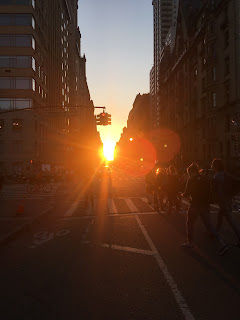This week
marks the beginning of my immersion term in the Department of Plastic Surgery
with my mentor Dr. Jason Spector. In my short time here I am starting to get a
feel for the breadth of the things that Plastic Surgeons ( referred to around
here as the Plastics team ) do on a daily basis. Plastic Surgeons deal with
many soft tissues and operate on muscle, fat, fascia, skin, and everything in
between. Going into this experience, I had an idea about the cosmetic side of
plastic surgery but I had greatly
underestimated the vital functional purposes of plastic surgery. For example,
after an orthopedic procedure the plastic surgery team comes in to close the
wound and they are the ones to consider the strength of the closure, the
healing of the underlying bones that would benefit from proper vascularized
muscle placement, and the resulting scar formation and healing process.
Starting
immersion I was immensely curious about surgical techniques but very
intimidated about viewing a surgery because I am the type of person that passes
out while giving blood. My first day in the OR I was very nervous but it was absolute
fascinating. It was a personal triumph for me to make it though and the most
surprising part of immersion so far was how much I enjoyed the OR. Before my
first day in the OR everyone told me I had to follow one rule: Don't touch
anything blue. As soon as I got into the room I understood what they meant. I
have spent years practicing sterile technique in a bio safety cabinet but it is
very different on the operating room scale. That is where the rule comes in: anything
blue or anything on a blue surface is sterile and can't be touched unless you
also are sterile, scrubbed in, and dressed in a sterile blue gown. I watched
things from a keloid scar removal, to an abdominal hernia repair with fat
removal, to the closure of a scoliosis repair with implanted titanium rods. During
the Hernia repair, the fat and underlying connective tissue was moved to expose
the muscle with the intestine poking out. After the intestine was put back in
place, muscle layer was sutured, surgical mesh applied, and excess fat trimmed,
they started to put the patient back together. However they made one more
incision first to make a belly button. I was so focused on watching the hernia
get repaired and the excess tissue get removed it didn't occur to me that this patient
had just lost a belly button. This detail brought back the human and individual
aspect to case and reminded me again of the lives that were being improved
through these amazing surgical feats.
Figure 1: The sunset in NYC

No comments:
Post a Comment